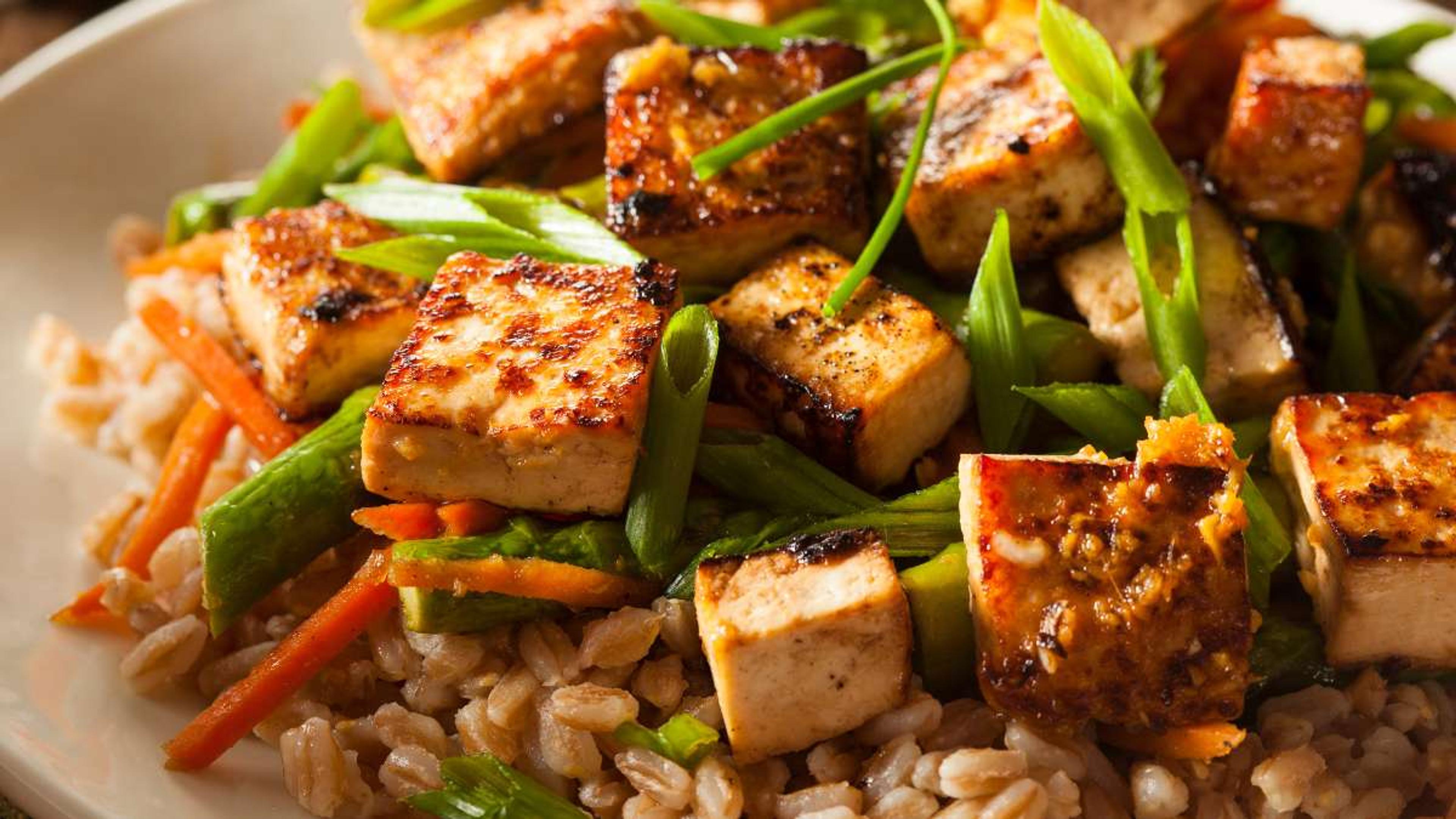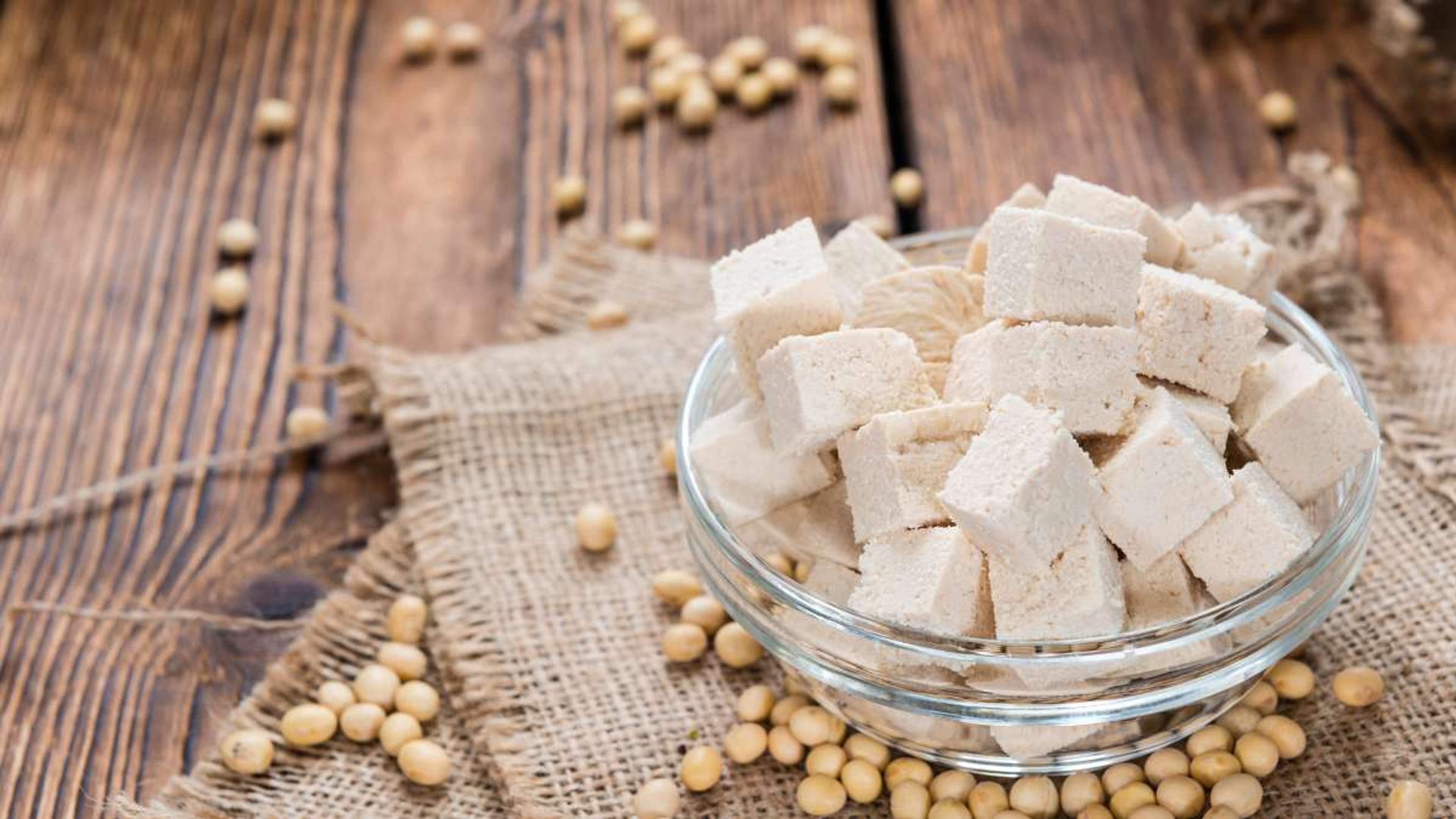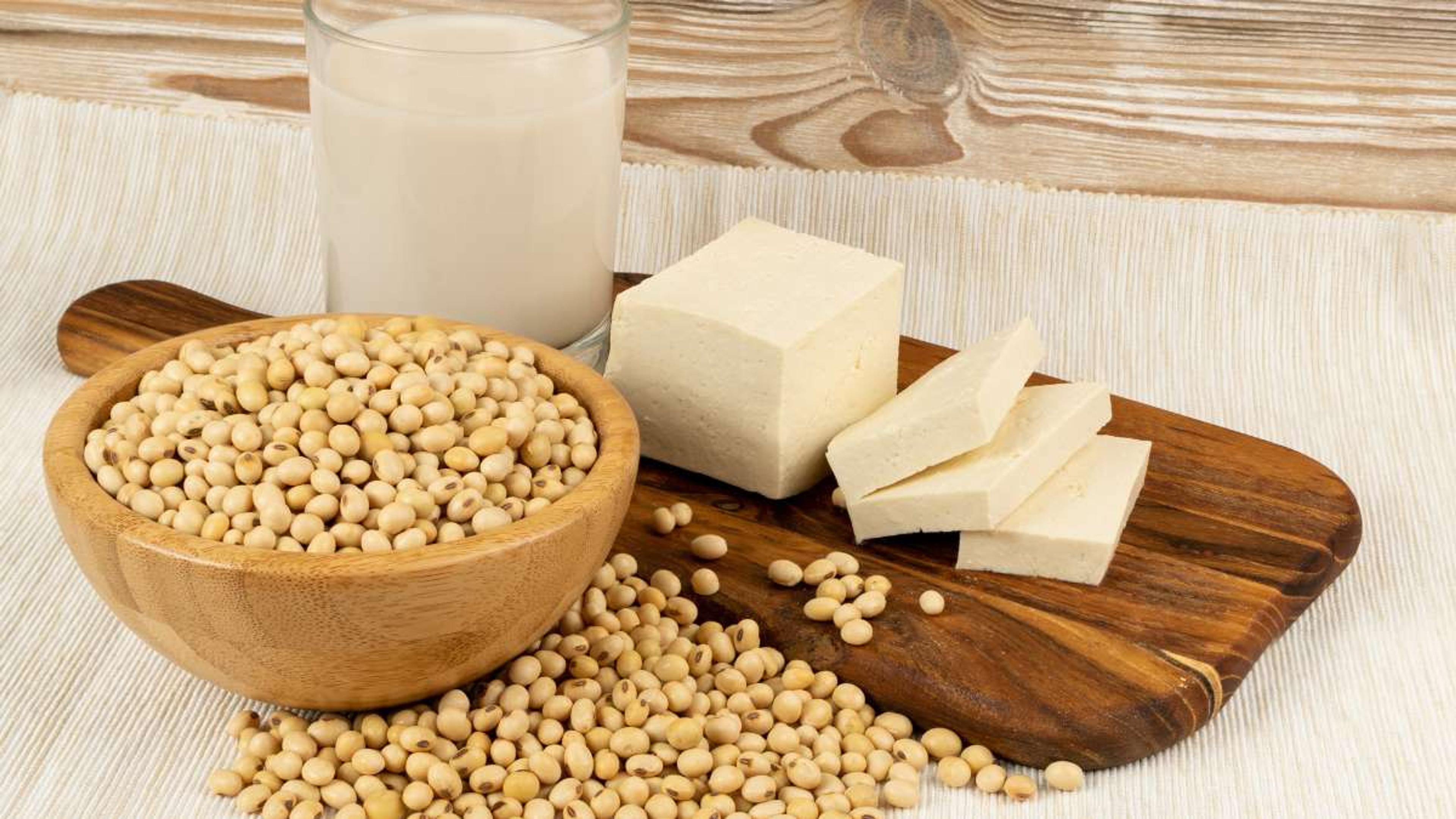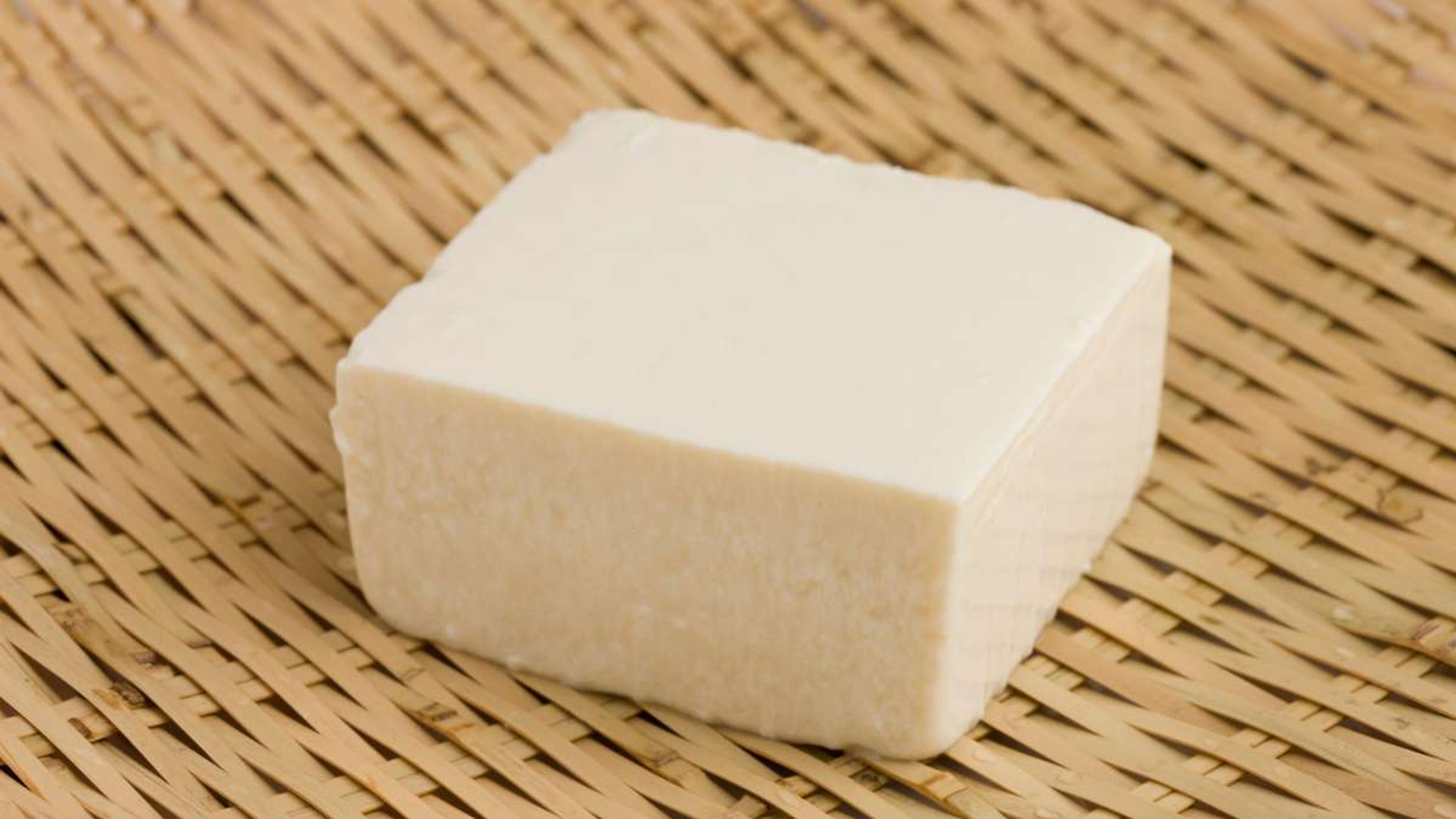Is Tofu Vegetarian? Exploring the Truth

- Key Takeaways
- Brief overview of tofu and its origins.
- Is Tofu Vegetarian and Vegan?
- The Making of Tofu
- Misconceptions and Varieties of Tofu
- How to Identify Vegetarian and Vegan Tofu
- Conclusion
- FAQs
Are you a vegetarian or vegan wondering if tofu is a suitable addition to your diet? Well, here's the good news: tofu is naturally vegetarian and even vegan! Made from soybeans, this popular food source offers a wide range of health benefits. In this article, we'll delve into the making of tofu, discuss different varieties, and help you navigate the world of veg-friendly options.
Ready to explore the truth about tofu? Let's dive in!
Key Takeaways
- Tofu is naturally vegetarian and vegan since it is made from soybeans without any animal products.
- Tofu has numerous health benefits, including being heart-healthy, lowering cholesterol levels, providing vitamins and minerals, and being low in fat.
- The process of making tofu involves turning soybeans into soy milk, coagulating the milk to form curds, pressing the curds into blocks or other forms, and cooling the tofu before packaging.
- It's important to read labels and check for "vegetarian" or "vegan" labels on tofu products to ensure they are suitable for your dietary needs.
Brief overview of tofu and its origins.
Tofu is a food loved in many places. It's made from soybeans, water, and coagulant or curdling agent. This mix creates soft, white blocks that we know as tofu. Long ago, people in China found this way to use soybeans.
The exact time of the first tofu is unclear but might be during the ancient Han dynasty. Some say it was an unplanned finding by a cook mixing seaweed with soybeans! Others think it came from Mongolian foods through China's upper classes.
Now, tofu serves as a key protein source in Chinese, Japanese, Korean and Southeast Asian meals. It has even spread around the world thanks to its health benefits and versatility in cooking methods like baking or grilling!
Is Tofu Vegetarian and Vegan?
Tofu is both vegetarian and vegan since it is made from soybeans, without the use of any animal products. Keep reading to learn more about tofu's origins and health benefits!

Tofu is naturally vegetarian and vegan
Tofu, often referred to as bean curd, is inherently vegetarian as it is derived from soybeans. The process of making tofu involves coagulating soy milk and then pressing the resulting curds into soft, white blocks.
Since its primary ingredient is soybeans, a plant-based source, tofu does not contain any animal products or by-products, making it a staple in vegetarian and vegan diets around the world. Its versatile nature allows it to be used in a variety of dishes, from savory to sweet, providing a protein-rich alternative to meat. Tofu is low in calories and has no cholesterol at all.
Tofu also fits well in a vegan diet. Dairy products such as milk and eggs are not used in the making of tofu. This means vegans can eat tofu without worry.
So, whether you are vegan or vegetarian, tofu is a great substitute for fish, seafood and meat.
Health benefits of Tofu
Tofu, a versatile soy product, is not only a staple in many vegetarian and vegan diets but also a powerhouse of nutrients. Here are some reasons why:
- Protein-Rich: Provides essential amino acids necessary for muscle building and repair.
- Good source of Calcium: Promotes bone health and strength.
- Contains Iron: Aids in oxygen transportation throughout the body.
- Contains Isoflavones: Compounds that can reduce the risk of heart disease and alleviate menopausal symptoms.
- Low-Calorie: Makes it a suitable choice for weight management.
- Low-Fat: Ideal for those monitoring their fat intake.
- Versatility: Can be incorporated into various dishes, enhancing nutritional content.
The Making of Tofu
Tofu is made by turning soybeans into soy milk and coagulating the milk to form curds, which are then pressed into blocks. Discover more about this fascinating process and the similarities to cheesemaking.
Read on to learn how tofu is made and why it's a popular choice for vegetarians and vegans.

The process of turning soybeans into tofu.
To make tofu, soybeans go through a series of steps:
- Soaking: Soybeans are soaked in water for 9 to 10 hours at lower temperatures.
- Crushing: The soaked soybeans are crushed or ground into a fine paste.
- Boiling: The crushed soybeans are boiled in water to create a thick mixture called soy milk.
- Separation: The mixture is then separated into solid pulp, known as okara, and the liquid component, which is the soy "milk."
- Coagulation: To create tofu, a coagulant such as calcium sulfate or magnesium chloride is added to the soy milk. This causes the protein and oil suspended in the boiled soy milk to solidify and form curds.
- Pressing: The curds are collected and placed into molds where they undergo pressing to remove excess moisture and shape the tofu into blocks, cubes or other desired forms.
- Cooling: After pressing, the tofu is cooled either using cold water or refrigeration.
- Packaging: Finally, the tofu is packaged and ready for distribution or sale.
Tofu is made through a process similar to cheesemaking. Just like cheese is made from cow's milk, tofu is made by coagulating soymilk and then pressing the resulting curds. This process gives tofu its distinct texture, firmness and taste.
In fact, tofu is often called "soy cheese" because it uses a coagulant, just like dairy cheeses. It's fascinating to think that making tofu may have been discovered while trying to make cheese out of soy milk! The similarities between tofu and cheese are also seen in how they can be used in dishes - both are versatile ingredients that can be grilled, baked, added to stir-fries or fried in an air fryer or in oil for a delicious meal.
Misconceptions and Varieties of Tofu
Addressing non-vegan versions of tofu, such as stinky tofu fermented with dairy milk or shrimp brine. Learn more about the different varieties and misconceptions surrounding tofu in this article.

Addressing non-vegan versions of tofu
Some versions of tofu, like stinky tofu, are not vegan or vegetarian. This is because they are fermented using ingredients like dairy milk or shrimp brine. The traditional process of making stinky tofu involves using a brine that includes fermented milk, vegetables, and sometimes even meat.
Dried shrimp can also be added to the brine, making it non-vegan. It's important to note that not all types of tofu contain these non-vegan elements, so it's always best to check the ingredients before consuming or buying tofu products.
Introduction to egg tofu
Egg tofu is a unique dish that looks like regular tofu but is made with eggs instead of soybeans. It has a soft, silken texture and a creamy taste. Unlike traditional tofu, which is vegan and vegetarian-friendly, egg tofu contains eggs as its main ingredient.
This Japanese dish called tamago tofu is often steamed or gently cooked to preserve its delicate texture. It's important to note that egg tofu does not usually contain soy or have the same nutritional profile as regular tofu.
So if you're looking for a non-vegetarian option or want to try something different, egg tofu might be an interesting choice!
How to Identify Vegetarian and Vegan Tofu
When shopping for tofu, always check the ingredient list and look for labels that specifically state "vegetarian" or "vegan." Don't miss out on this informative guide to ensure you're making the right choice for your diet.
Tips for spotting tofu varieties in stores and restaurants.
- Look for labels or packaging that clearly state "vegetarian" or "vegan" on the tofu product.
- Check the ingredient list to ensure there are no animal products, such as dairy or eggs, listed.
- Choose tofu that is made from soybeans and avoid any varieties that contain ingredients like stinky tofu fermented with dairy milk or shrimp brine.
- Ask store employees or restaurant staff if they can confirm that the tofu being served is vegetarian and vegan-friendly.
- Be aware of different types of tofu, such as silken tofu, firm tofu, and extra-firm tofu, and choose according to your recipe needs.
- Familiarize yourself with the texture and appearance of different types of tofu so you can easily identify them.
- If in doubt, try reaching out to the manufacturer directly for more information about their tofu products.
Importance of reading labels and understanding ingredients.
Reading labels and understanding ingredients is crucial for vegetarians and vegans. It helps ensure that the products they consume align with their dietary choices. Here are some reasons why it's important to pay attention to labels:
- Avoiding animal-derived ingredients: By reading labels, they can identify any hidden animal-derived ingredients in food items.
- Identifying suitable options: Some products may be labeled as "suitable for vegetarians" or "suitable for vegans." This makes it easier for individuals to find appropriate options without having to scrutinize every ingredient.
- Being aware of potential allergens: Reading labels can help individuals with food allergies or intolerances identify possible allergens in the product, such as soy, gluten, or nuts.
- Making informed choices about nutrition: Understanding the nutritional facts on the label allows individuals to assess if a product meets their dietary needs. For example, checking the protein content in tofu can help vegetarians and vegans ensure they are consuming enough plant-based protein.
- Supporting ethical and sustainable practices: Some people choose vegetarian or vegan diets due to environmental or ethical concerns. By reading labels, they can support brands that align with their values and avoid those that don't prioritize sustainability or fair trade practices.
Conclusion
In conclusion, tofu is indeed vegetarian and vegan-friendly. It is made from soybeans and does not contain any animal products. Tofu is a versatile and nutritious ingredient that can be enjoyed by vegetarians, vegans, and anyone looking to add more plant-based options to their diet. However, when shopping for tofu from your grocery store, be sure to check for food labels that specifically states 'vegan' or 'vegetarian'.
FAQs
1. Is tofu vegetarian?
Yes, tofu is considered vegetarian as it is made from soybeans and does not contain any animal products.
2. Can vegans eat tofu?
Yes, vegans can eat tofu as it is plant-based and does not contain any animal-derived ingredients. Tofu makes a great addition to vegan food as a meat substitute.
3. Does tofu provide the same nutrients as meat?
Tofu is a good source of protein, similar to meat, and also provides essential nutrients such as iron and calcium.
4. How can I use tofu in my meals?
Tofu can be used in various dishes such as stir-fries, soups, salads, or even grilled or baked. It absorbs flavors well and can be seasoned according to your preference.

